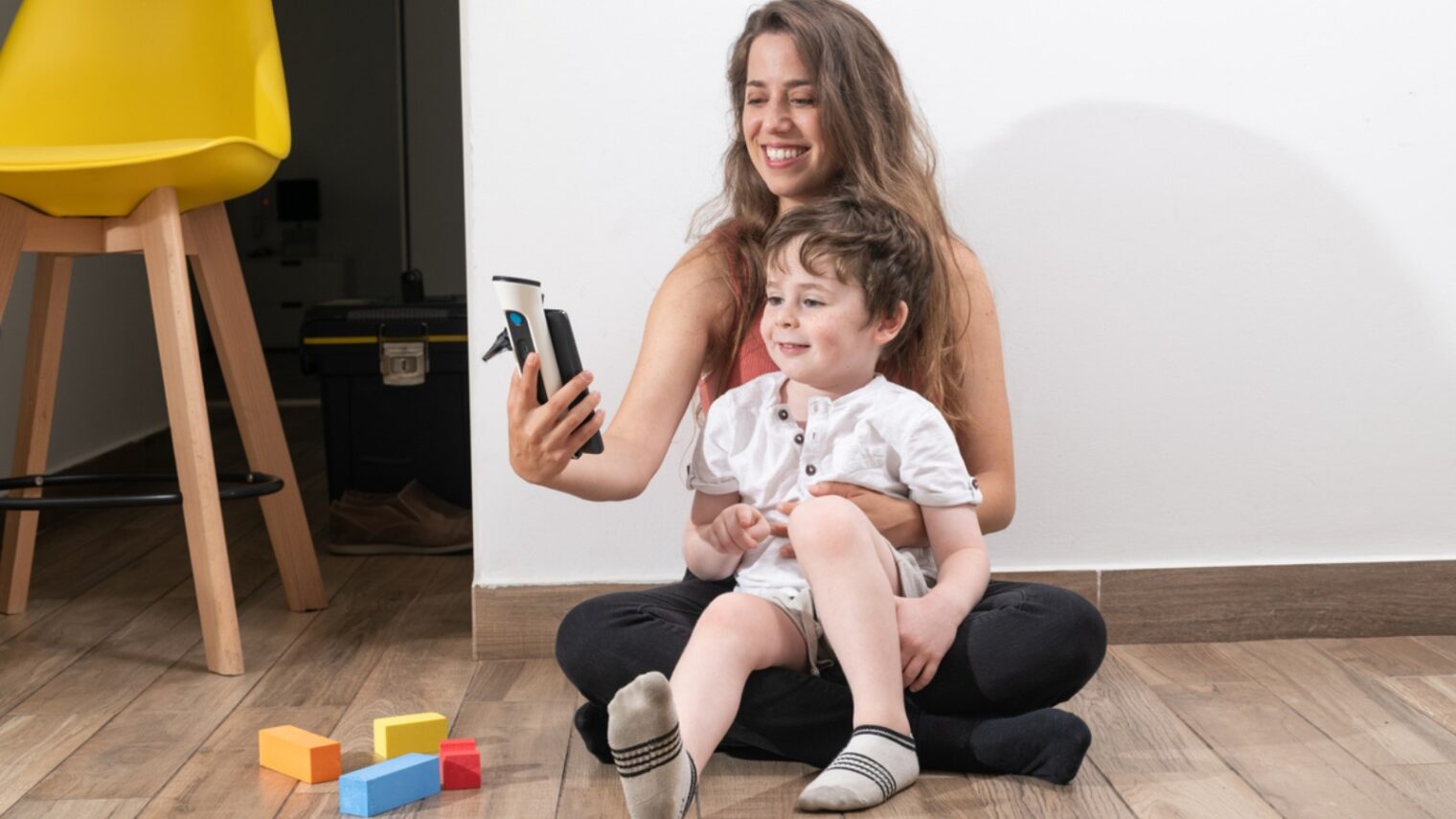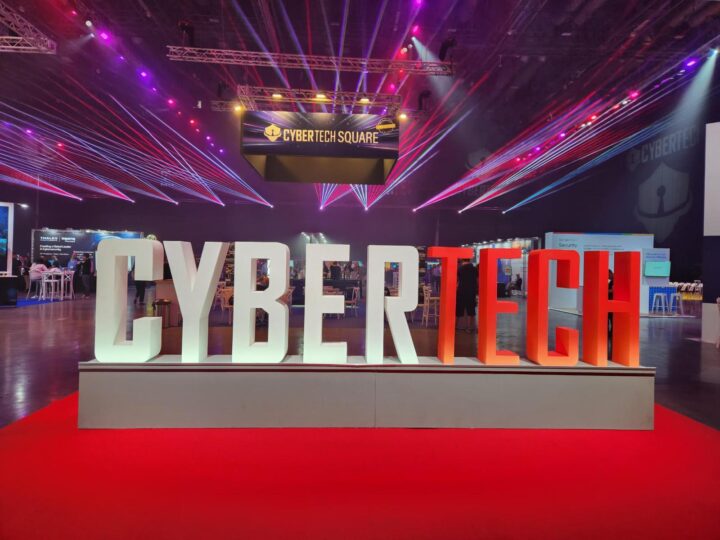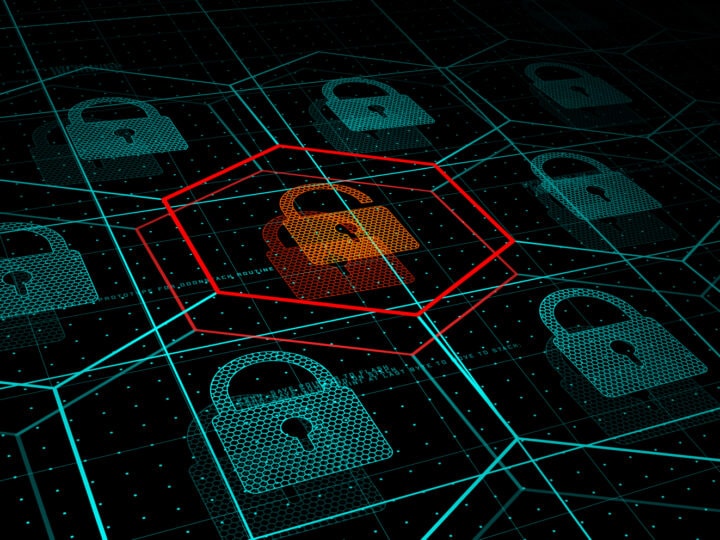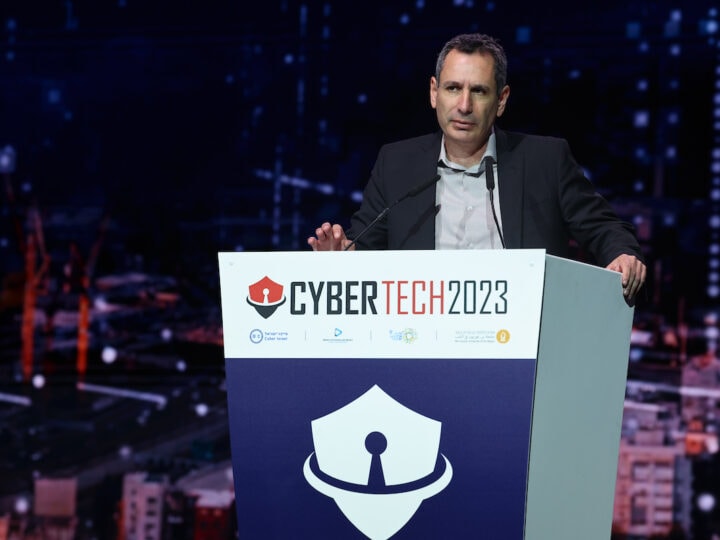The Covid-19 crisis has accelerated an embrace of telemedicine by doctors and patients alike.
Patients have been happy to connect remotely in order to avoid entering a medical facility. Physicians find that consulting with patients over the phone or on Zoom saves them time.
Israeli startup Nonagon (formerly MyHomeDoc) is adding a new tool to the telemedicine bag of technology tricks: the N9 nine-in-one home device (hence the company’s new name, which refers to a nine-sided polygon) that performs many of the tests a doctor has traditionally done in person.
The portable device includes a stethoscope to listen to lung, heart and bowel sounds; an otoscope to look into the ears; an oximeter that checks pulse rate and oxygen (critical for monitoring Covid-19); and a thermometer to record body temperature. For throat and skin tests, the device uses the camera on the patient’s smartphone.
Patients can send the results of their at-home checks directly to their physicians if the latter have installed Nonagon’s software. The data easily integrates into existing physician and HMO software systems.
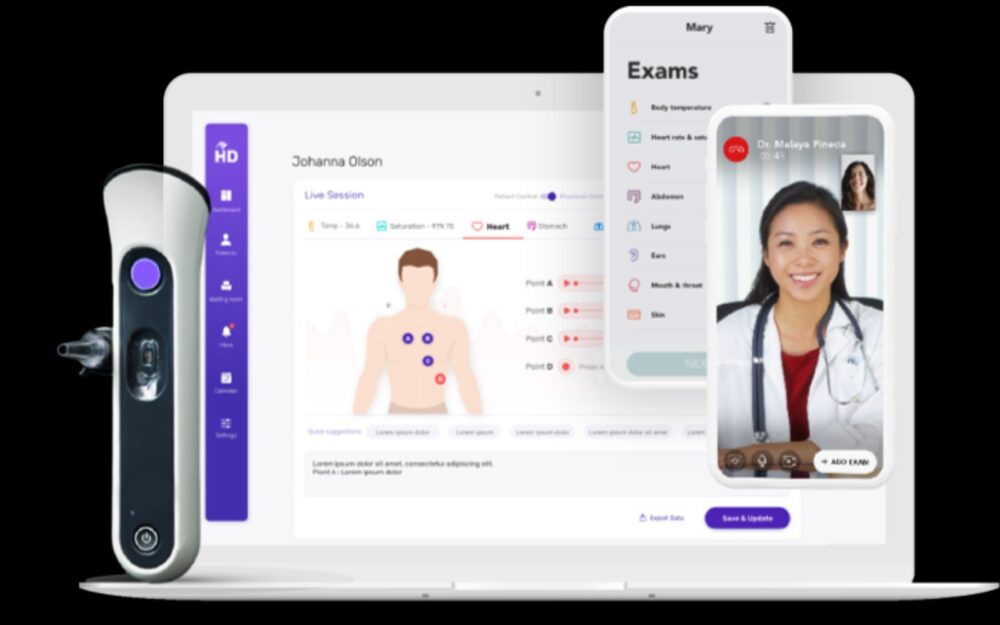
Patients can communicate with their doctors offline, in real-time, or in “blend” mode where the patient sends data to the doctor who reviews it offline, then opens an online session to discuss what comes next. The physician can even operate the Nonagon remotely.
Without a tool like N9, the physician must make a tele-health diagnosis “without any clinical data to base it on,” Omer Maman, Nonagon’s VP of marketing, tells ISRAEL21c. “He can’t listen to my lungs or look in my ears when he needs to prescribe treatment.”
FDA approved
Nonagon’s device received FDA clearance in late March. That followed European CE approval granted earlier in 2021.
The N9 should not be confused with other remote monitoring technologies – for example, devices that provide a constant feed of data on blood pressure, glucose or hypertension. Those tend to be more expensive, cumbersome and aimed at people with chronic conditions.
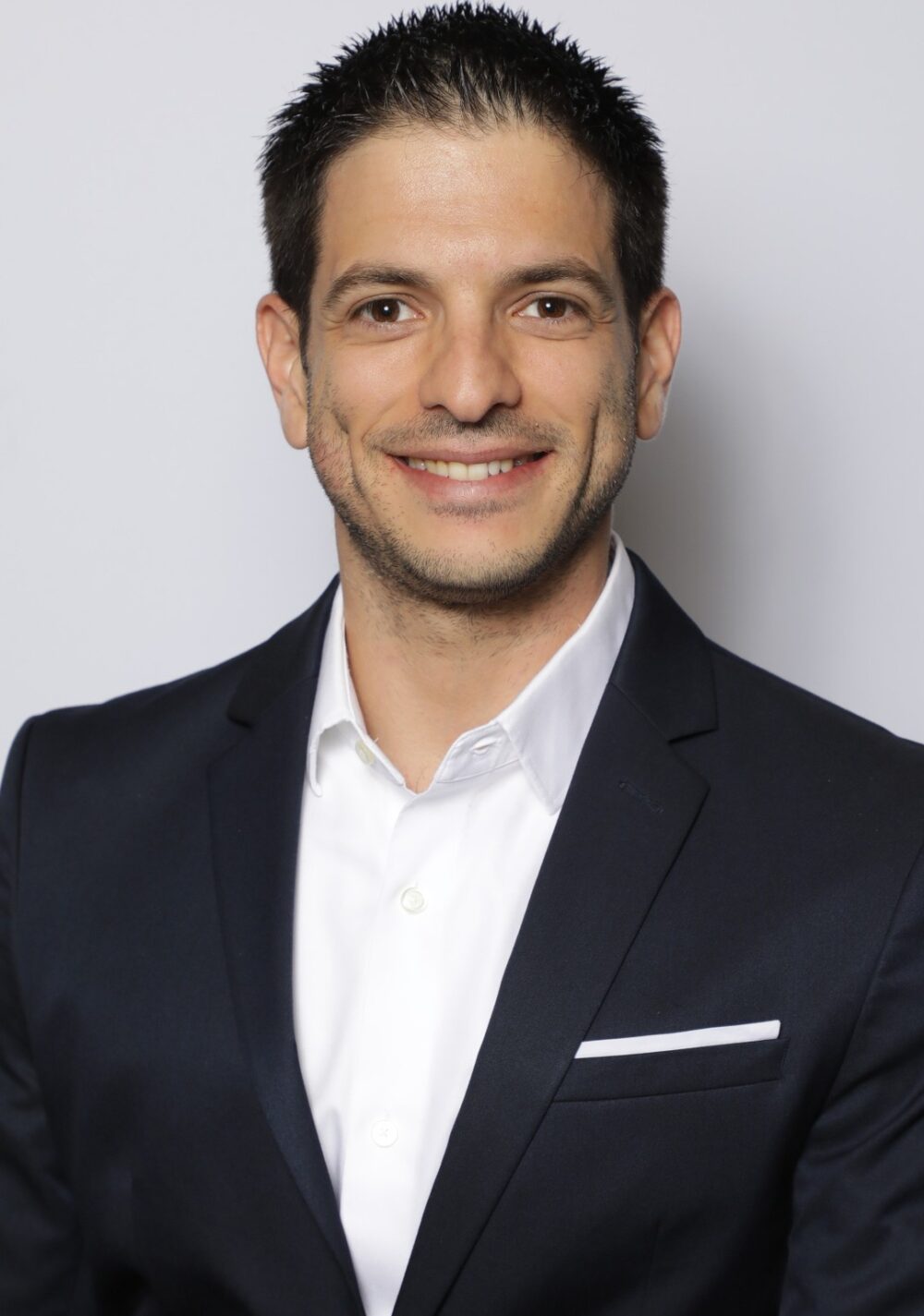
“Our product addresses the needs of an entire family or household, no matter if the patient is a child or a senior, a chronic patient or not,” Maman points out.
There are also complete remote monitoring systems such as those being developed by Tel Aviv Sourasky Medical Center’s I-Medata initiative using products from two Israeli medical device companies: Petah Tikva-based BioBeat, which has developed a disposable patch worn on the skin to track such vital signs as blood pressure, oxidation rate, pulse, skin temperature and sweat; and AnyVision of Holon, which specializes in facial and object-recognition software.
Then there’s the Apple Watch. Apple CEO Tim Cook has boasted lately that the medical monitoring functionality of Apple’s flagship wearable may be the company’s “greatest contribution to mankind.”
While some of the sensors on the Apple Watch and the Nonagon N9 may be the same, Maman stresses that N9 is an FDA-cleared medical device, rather than a wellness device. It is available only by prescription, at least for now.
“Our channels are physicians, healthcare systems, insurers and other institutions that are interested in leveraging their telehealth capabilities with valid clinical data to provide better patient care,” Maman explains.
Depending on the arrangement, some medical offices will sell the device directly to patients, while in other cases, “the healthcare system or the insurers will finance it.”
N9 is compliant with the latest data privacy standards such as the European Union’s GDPR and the US Health Insurance Portability and Accountability Act (HIPAA), which requires companies to protect sensitive patient data. There is also strong security to prevent hackers from accessing a patient’s private information.
Easy to operate
Unlike devices from competitors including Medwand in California and Netanya-based TytoCare, there are no cameras or display on the Nonagon N9, which reduces its size and the need for bulky accessories like extra memory cards or circuit boards.
“Our device can be cost attractive compared with the competition since we leverage the smartphone’s capabilities for many of our features,” Maman noted.
“Today, even grandparents know how to operate a smartphone app, so there’s no new learning curve.”
Though he declined to say how much N9 will cost, Maman said it should be affordable, “making basic primary and pediatric care accessible to the mass population, something that expensive smart watches can’t do.”
Nonagon got its start in a health-tech incubator established by Teva, the Israeli generic drug maker, and Phillips, which manufacturers many medical devices including world-leading MRI and CT machines. Four years of R&D went into building the hardware, mobile app and admin tool for the physician.
Nonagon is headquartered in Ra’anana and employs around 15 people. A small team of sales and marketing staff work in the company’s Massachusetts office.
Maman has been in the medical devices industry for 12 years, most recently at Lumenis, which manufactures lasers for medical and surgical purposes. He previously worked at ReWalk Robotics. Nonagon was founded by Nir Raz and the company’s CEO is Alon Natanson.
With Nonagon’s device now ready for sales, the company is “opening channels with potential business partners in the US and other regions,” Maman tells ISRAEL21c. “Hopefully we will be able to launch some business pilots soon.”
For more information, click here.




